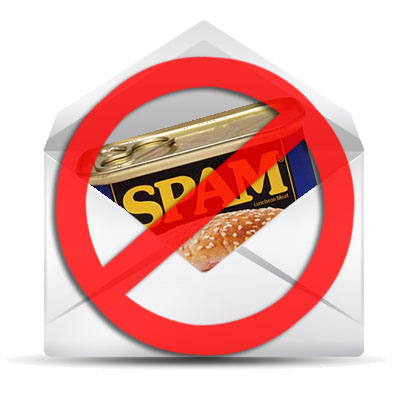What exactly is SPAM and how do I avoid getting canned…
In order to be in business these days it is essential to use email but with that great tool sometimes comes great annoyance. SPAM is the bane of most business people’s existence but what exactly is SPAM? Well, you might not believe it but that question is a source of great debate. Many definitions have been bandied about such as:
- Stupid, Pointless Annoying Message
- Sales Promotional Advertising Mail
- Simultaneously Posted Advertising Message
- Stupid Persons Advertising Mail
And though many of them go way back and all of them are accurate, the actual origination of the term is supposedly from a Monty Python sketch about a SPAM serving restaurant in which vikings began chanting loudly about the canned meat every time it is mentioned. You can just hear it now, can’t you? (If not, Click here to listen in and you will never again look at email without hearing it).
Everyone hates SPAM, even Hormel hates it (not the canned kind, they love that) and an entire industry has grown up around preventing people from having to see it. So now that you know why it is called what it is called, the big question that remains (especially for marketers) is “How do I keep my messages from getting caught up in those wonderful filters?”. Well, the answer to that can be very complicated because there is no set answer. The parameters of every SPAM filter is set by the person in charge of setting it up on that particular network. Most filters work on a point system. They set values for different types of content and then set a threshold to determine what is good and what is bad. Once your message hits the set limit, its down the bad egg shoot you go. Some IT people may really hate SPAM and set the tolerance of the filters to be very low to catch anything that could potentially offend pristine inboxes while others might be a bit more liberal with what gets through. The only thing you can really do to stay out of that dreaded dog catchers net is to try to mitigate the damage by employing a few basic best practices:
- Don’t use spammy phrases that scream sales email like “Click Here Now!”, or “GREAT SAVINGS”. SPAM filters don’t like you to be to “salesy”
- Lay off the exclamation points!!!!!! Let your content speak for itself, there is no need to beat them over the head with it.
- Avoid USING ALL CAPS or “yelling” (especially in the subject), SPAM bots hate that.
- Tone it down and don’t use bright red, or green fonts. I know you want to get their attention but there is no need to be rude and SPAM filters get offended easily, Major.
- Send real content! Sending something that’s all images with little or no text is a huge red flag because spam filters can’t read images. They get a bit put out and may assume you’re a spammer.
Sloppy code like that generated from a program like Microsoft Word is also a dead giveaway. There are a large number of decent free or low-cost WYSIWYG (What You See Is What You Get) HTML editors out there, find one that works for you or bite the bullet and hire a professional to build your email for you and avoid the mess altogether.
These tips are no guarantee that your email will not end up on the block and there are a great many other things that you can do to try to mitigate your risk but with a little effort (and a lot of marketing self control) you can help ensure that the email man does not have to ring twice.




